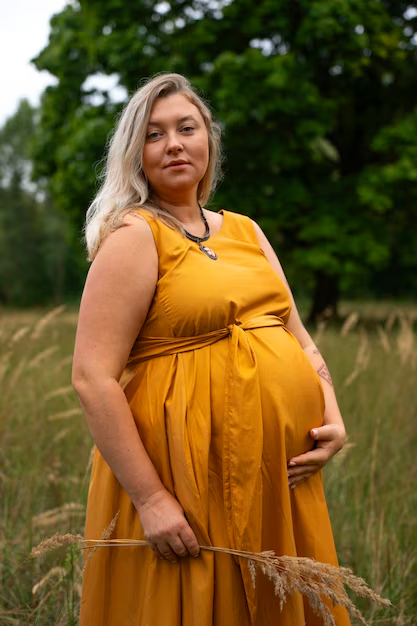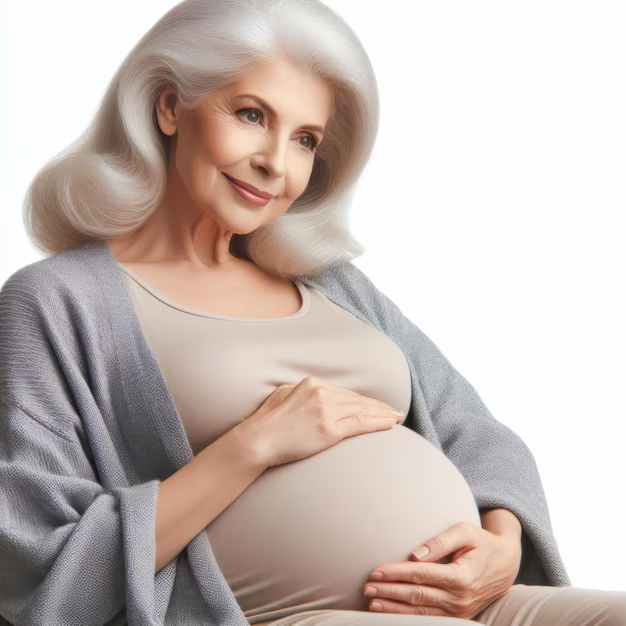
Pregnancy between 45-50 is becoming more common for several reasons. Most women prefer to delay having children because of shifting social patterns, for example, getting married later or pursuing professional development first. By their 40s and 50s, they tend to feel more financially sound and emotionally mature to have a family. These life decisions, along with changes in fertility services such as IVF and egg donation, enable women to give birth successfully and have children well into older life.
Nevertheless, it is crucial to realise the risks of pregnancies at advanced maternal age (AMA). Although the term "geriatric pregnancy" is obsolete, the complications are still severe for women getting pregnant later in life.

Having a baby at 35 or older is sometimes referred to as a 'geriatric pregnancy', although healthcare professionals now prefer the term 'advanced maternal age'. If you'll be 35 or older by your due date, you fall into this category. While many women have healthy babies in their 30s and 40s, it's still important to take steps to ensure a healthy pregnancy for both you and your baby, and be aware of the risks associated with it.
Here are the risks you need to keep in mind when planning a baby after 45, according to Dr Sheetal Jindal-MBBS, MD OBG, EPHM (IIM Kolkata), Senior consultant and medical director, Director Medical Genetics program at Jindal IVF, Chandigarh:

Women have a limited supply of eggs, and with advancing age, the number as well as the quality of these eggs decrease. This raises the chances of chromosomal abnormalities, resulting in disorders like Down syndrome and other genetic disorders.
“There is a doubled risk of miscarriage after 35 years of age and increases further beyond the age of 50 years, owing to factors related to age such as hormonal imbalances and decreased uterine receptivity,” said Dr Sheetal.
Don't Miss:Late Periods? 4 Reasons As Per Doctor
In addition to genetic issues, older mothers are also at increased risk for a range of pregnancy complications. Fibroids and endometriosis, conditions associated with aging, become more common as a woman ages and may impact conception as well as the course of pregnancy.
Gestational diabetes and preeclampsia (severe high blood pressure) also occur frequently in women above the age of 40, which complicates both pregnancy and delivery. These medical conditions, if not monitored regularly, can pose serious risks to both mother and child.
Don't Miss: Vitamin D During Pregnancy: Benefits, Risks, And Natural Sources, As Explained By Doctor
“Women who want to have a child after 40 must come at it with careful preconception planning and consistent prenatal care. Advancements in reproductive medicine have certainly increased the window of reproduction, yet the choice of conceiving at an older age must be exercised with full realisation of the likely risks and precise control under professional healthcare providers,” said Dr Sheetal.
Keep reading Herzindagi for more such stories.
Credits: Freepik
Also watch this video
Herzindagi video
Our aim is to provide accurate, safe and expert verified information through our articles and social media handles. The remedies, advice and tips mentioned here are for general information only. Please consult your expert before trying any kind of health, beauty, life hacks or astrology related tips. For any feedback or complaint, contact us at [email protected].